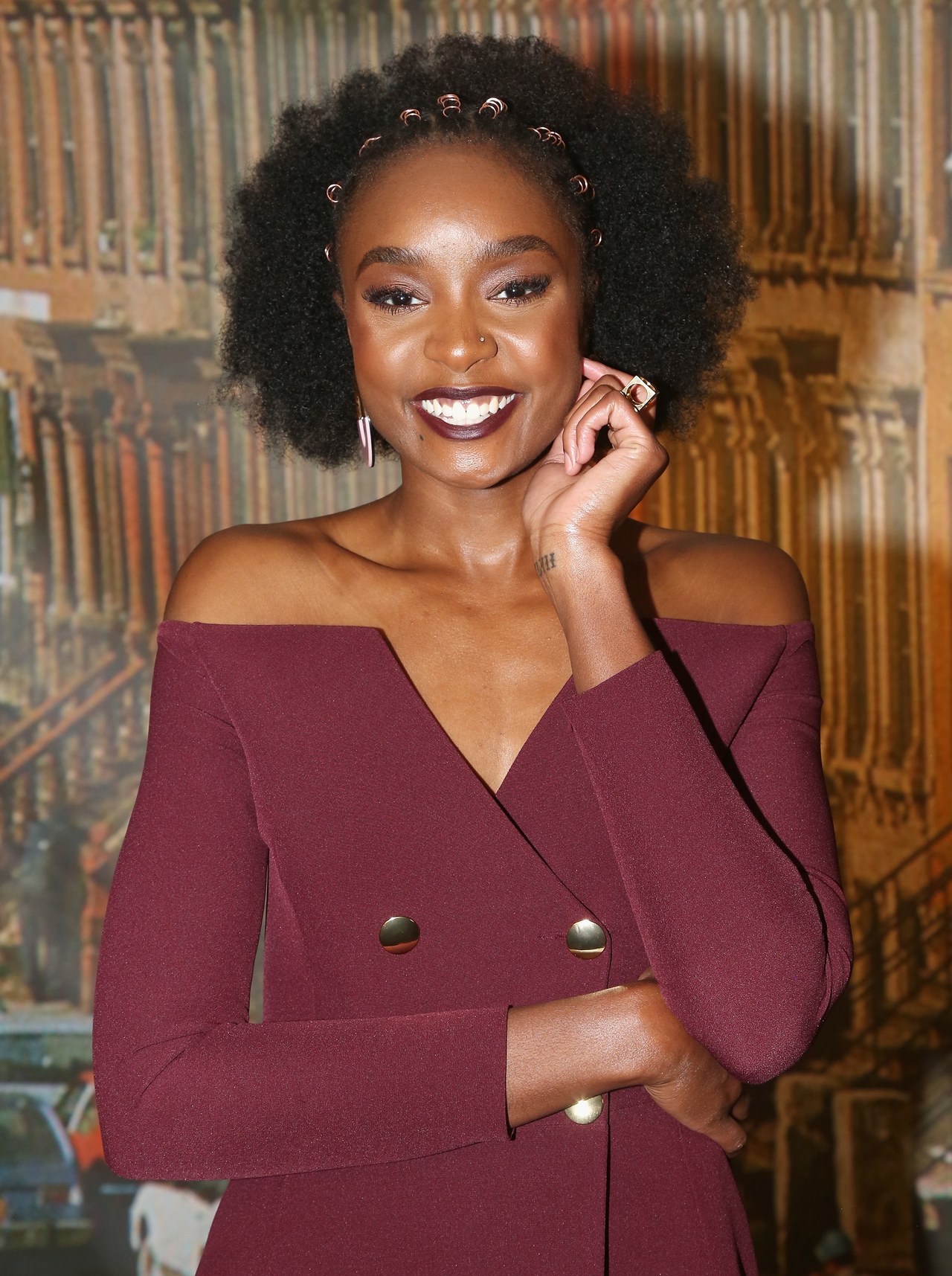Meet KiKi Layne, the If Beale Street Could Talk Actress Everyone's Talking About

There’s something familiar about KiKi Layne when you meet her, even though she’s on the brink of super stardom. Her smile is contagious, the kind that only belongs to that person in high school who was everyone’s best friend. Her infectious laughter is disarming. And when the 26-year-old talks about watching The Lion King and Selena repeatedly as a kid—so much so that it would drive her brother crazy—you laugh and remember doing the same. Talking to her is like catching up with an old friend, the one you always knew would make it.
As the breakout star of Barry Jenkins’ buzzy If Beale Street Could Talk, the film adaptation of the James Baldwin novel in theaters now, Layne plays Tish Rivers, a woman trying to prove her lover’s innocence while pregnant with their first child. Layne says it was the special combination of Baldwin’s writing and Jenkins’ directorial prowess that initially drew her to the screenplay. “Reading the script, I thought it was amazing how it’s this really beautiful love story,” Layne says. “You’ve got these two young black people who are soulmates, but they’re dealing with issues that are just as present today as they were when the book was written in the early ‘70s.”
PHOTO: Bruce Glikas/Getty Images
Jenkins’ interpretation of Baldwin’s story brings a complexity and humanity to the reality of black people’s experiences, so much so that Layne knew immediately she needed to be a part of it. If Beale Street Could Talk effectively highlights how systemic oppression affects black relationships and thwarts the power of black love. In particular, Layne speaks to the difficulty of filming the movie’s prison scenes, knowing full well that those scripted moments are a reality for many black women today. “I was very aware that this isn’t some general story,” she explains.
To prepare for the role, Layne relied heavily on the life of Kalief Browder—a young black man who spent two years in solitary confinement on Rikers Island awaiting trial for allegedly stealing a backpack—and the impact his prison sentence had on the people he loved. “I watched the docuseries about his life and paid attention to what everything was doing to his family and the people who were left behind to try to fight for him,” Layne says. “They were experiencing this with him, too.”
“To see a young black woman being loved for just who she is—her hair, her skin, her clothes—is powerful.”
Working alongside such powerful black actresses as Regina King and Teyonah Parrish, Layne also understands the movie’s ability to challenge the stereotypical narratives around black women’s strength. “Working on this film gave me a different perspective on what a ‘strong black woman’ looks like,” she says. “I don’t think I’d ever seen a strong black woman who had the characteristics of Tish—someone who was vulnerable, open; so loved and loving.” Playing Tish, Layne says, enabled her to reimagine both what power is, and what it could be. “I’m hoping that seeing this film and more images of black women being really comfortable in their skin gives a broader perspective of what strength looks like for us,” she explains. “For a while, the perceptions have been very narrow.”
And she’s right. The acceptance of black women’s natural beauty is rare in today’s mainstream media, but throughout the film, the combination of Layne’s beauty and Jenkins’ meticulous eye create a series of standout moments. “In this film, you see a black woman being loved so hard for just being her natural self,” she says. “To see a young black woman being loved for just who she is—her hair, her skin, her clothes—is powerful. She doesn’t have much, but what she has is enough.”
Yet, even as the entertainment industry and society at large still struggle to include black women within its standards of beauty, Layne is glad they’re not waiting. “We’re seeing more black women saying: ‘This is who I am; this is what I’ve been given.’ And it’s beautiful.” She continues: “It’s especially important in the time of social media where there are so many images of this very specific type of woman that’s supposed to be beautiful, sought after and sexy. To see women rejecting that and embracing who they really are, it’s really powerful.”

PHOTO: Allstar/Annapurna Pictures

PHOTO: Allstar/Annapurna Pictures
It’s rare that black women’s stories are told with the same veracity this film offers. Layne knows this, and considers herself lucky to be entering the industry at a time when movies like If Beale Street Could Talk are being made. “We are in a moment where there are just so many more platforms and outlets and opportunities for us to get our stories heard,” she says. “Instead of asking for permission, we’re seeing more artists and creatives taking control over the stories we tell. That’s a powerful time to enter.”
Thinking beyond this film, or even her next project—a screen adaptation of Richard Wright’s 1940 novel Native Son—Layne aspires for a career that’s not just fruitful for herself, but also for others. Recognizing the reality of black women’s experiences in the entertainment industry, the actor hopes her career creates more opportunities for young black women everywhere. “I want to push the boundaries on the roles that have historically been given to actresses who look like me,” she says. “There is so much more we can do. There always has been.” The way she says this—with a gleam in her eye that shows an honest, genuine determination to make a difference—makes you believe her.
KiKi Layne is going to do that, and more. And we’ll be all the better for it.
Candice Benbow is a writer and activist living in New Jersey.
